
CBC Television
Featured Show:
Cities
Cities is a Canadian documentary television series broadcast on CBC Television from 1979 to 1980, followed by repeats for two years. Produced and directed by John McGreevy. The series featured a celebrity who would appear in an episode on location in a personal favourite city or more specific location. Appearances included Glenn Gould, Peter Ustinov, Elie Wiesel, George Plimpton and Mai Zetterling. Also appearing were Anthony Burgess, John Huston, Melina Mercouri and Hildegard Knef.
CBC Television TV Shows
978 shows • Page 16 of 49
 0
0Cities
Cities is a Canadian documentary television series broadcast on CBC Television from 1979 to 1980, followed by repeats for two years. Produced and directed by John McGreevy. The series featured a celebrity who would appear in an episode on location in a personal favourite city or more specific location. Appearances included Glenn Gould, Peter Ustinov, Elie Wiesel, George Plimpton and Mai Zetterling. Also appearing were Anthony Burgess, John Huston, Melina Mercouri and Hildegard Knef.
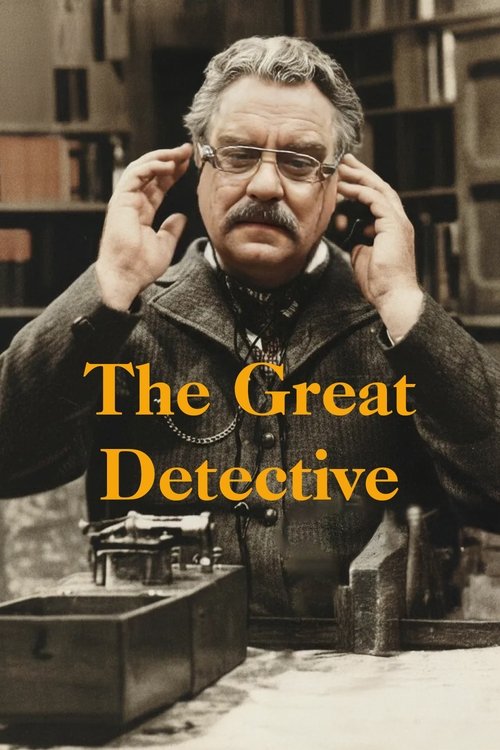 0
0The Great Detective
The Great Detective is a Canadian television drama, which aired on CBC from 1979 to 1982. It starred Douglas Campbell and James Dugan.
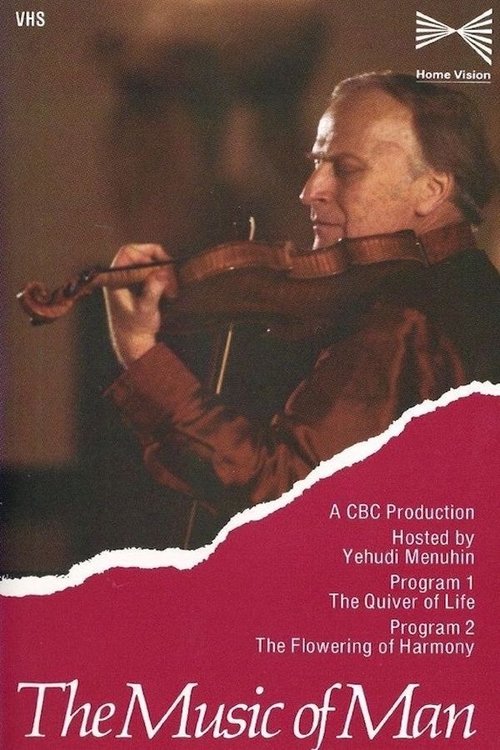
The Music of Man
An exploration of the world's music. Yehudi Menuhin has created this expansive survey of musical traditions from five continents. With panoramic vision and infectious enthusiasm, he takes us from primeval rhythms of Africa to the symphonies of Beethoven, from plainsong to jazz, from Swiss yodeling to Irish jig, from steel drum to electronic synthesizer. The Music of Man was a series of eight hour-long specials with host Yehudi Menuhin, following the development of music from its beginnings at the dawn of history to the electronic experiments, jazz and rock of our own time. Menuhin, the renowned violinist, conductor and humanist, participated both as violin soloist and conductor throughout the series, and was also co-writer.
 0
0Canadian Reflections
Canadian Reflections is a Canadian independent short film television series which began on CBC Television in 1978. Early works by David Cronenberg and Atom Egoyan were featured during the series run.
 0
0Leo and Me
Leo and Me is a Canadian television sitcom that was originally produced in 1976 but did not air until 1981. It starred a 15 year old Michael J. Fox, in his television acting debut, playing Jamie, the 12 year old younger brother of Leo. Leo and Me was produced by Don Eccleston, directed by Don S. Williams and written by Marc and Susan Strange.
 0
0The Newcomers
The Newcomers was a series of seven hour-long Canadian television specials that aired from 1977 to 1980 on CBC Television. The series was sponsored by Imperial Oil to mark the company's 100th anniversary in 1980. The series, written by Timothy Findley and Alice Munro, explored the theme of Canada as a nation built by immigrants, spanning from the era before Canada was founded until modern times. A French version aired on Radio-Canada with the title Les Arrivants. The opening theme music for the series was composed by Hagood Hardy.
 0
0Custard Pie
Custard Pie is a Canadian situation comedy television series which aired on CBC Television in 1977.

Stay Tuned
Stay Tuned was a Canadian improvised comedy television series broadcast on CBC Television throughout October 1976.
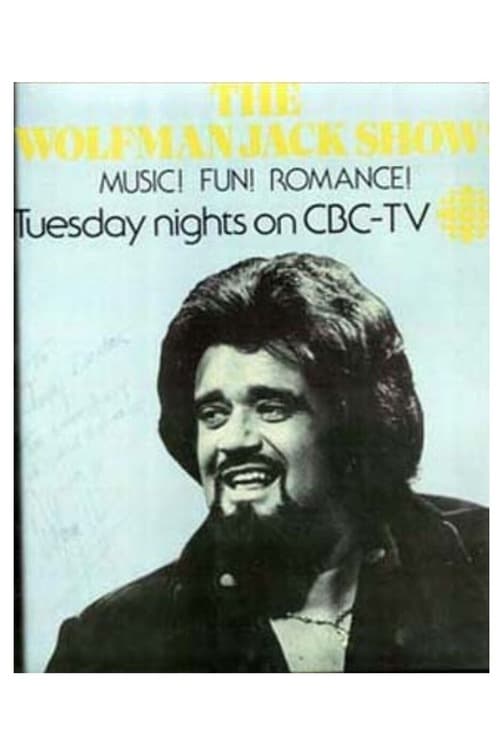 0
0The Wolfman Jack Show
The Wolfman Jack Show was a Canadian variety television series which aired on CBC Television from 1976 to 1977, and syndicated to stations in the US. Wolfman Jack, also known as Bob Smith, found his fame surged after his "appearance" in American Graffiti and hosting NBC's The Midnight Special. Co-produced by Jack's company and CBC in Vancouver, the show showcased Canadian and international rock acts, along with comedy from Danny Wells, Peter Cullen, Sally Sales, and the Famous People Players. Don Kelley served as executive producer, Riff Markowitz as producer, and Mark Warren as director.

Second City Television
Second City Television is a Canadian television sketch comedy show offshoot from Toronto's Second City troupe that ran between 1976 and 1984.

The Fifth Estate
Each week the fifth estate brings in-depth investigations that matter to Canadians – delivering a dazzling parade of political leaders, controversial characters and ordinary people whose lives were touched by triumph or tragedy.

Peep Show
An anthology of half-hour drama programs by new and emerging Canadian writers and directors.
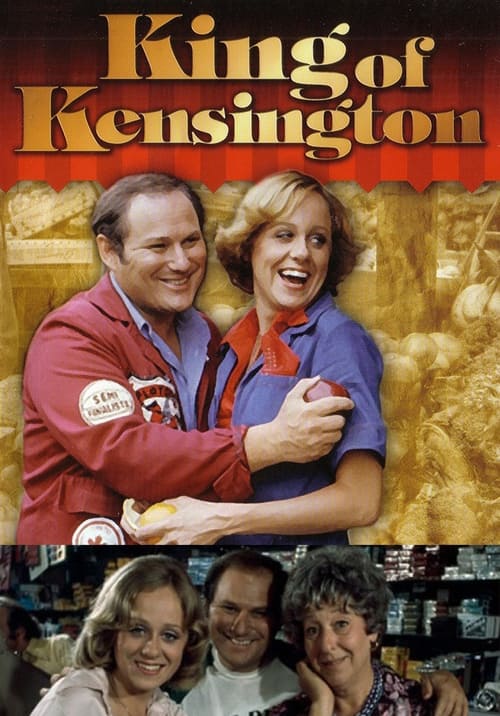
King of Kensington
King of Kensington is a Canadian television sitcom which aired on CBC Television from 1975 to 1980. The show starred Al Waxman as Larry King, a convenience store owner in Toronto's Kensington Market who was known for helping friends and neighbours solve problems. His multicultural group of friends consisted of Nestor Best, Max, and Tony "Duke" Zarro, who hung around regularly to the perennial disapproval of King's mother Gladys. The show was popular with viewers; prior to the start of the fourth season one of the producers noted that show drew 1.5 to 1.8 million viewers weekly. For the first three seasons, Fiona Reid played his wife Cathy. At the end of the third season, Reid decided to leave the series, so Larry and Cathy divorced. The show never fully recovered its stride or chemistry as Larry pursued other relationships, most notably with Gwen Twining in the final season. The show's gentle but politically conscious humour is seen by some critics as a Canadian version of the topical Norman Lear sitcoms of the 1970s, such as All in the Family and Maude. The series was syndicated to some American stations during the height of its popularity, including WTTG in Washington, D.C.
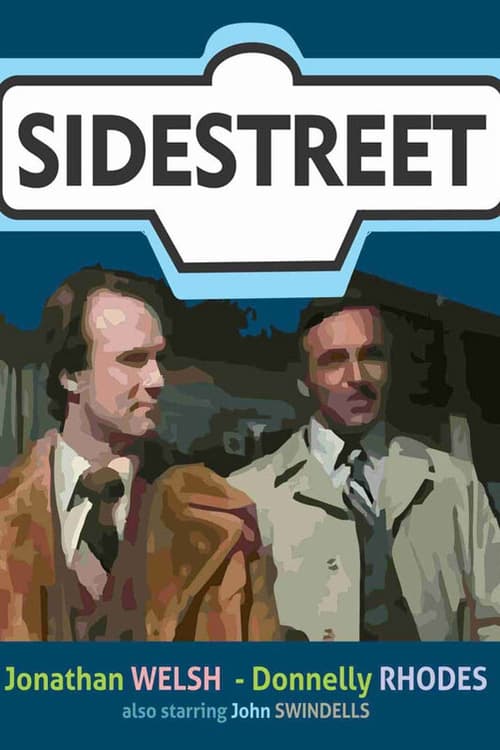
Sidestreet
Sidestreet was a Canadian television drama, which aired Sundays on CBC from 1975 to 1978. It starred Sean McCann and Donnelly Rhodes as police working the mean streets of 1970s Toronto. The producers of "Sidestreet:" wanted to feature community service officers instead of ordinary detectives. They aimed to concentrate on issues such as blockbusting, strikebreaking, rape, poverty, and the problems of the elderly in the city, instead of major crimes.
 0
0Double Up
Double Up is a Canadian quiz show television series which aired on CBC Television in 1974.
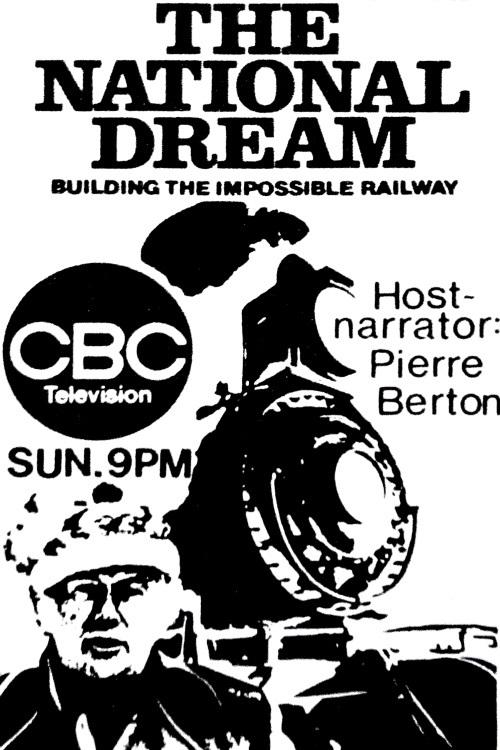 0
0The National Dream
A combination of documentary and dramatic reconstructions, depicting the conception and construction of the Canadian Pacific Railway in the late 19th century.
 0
0Juliette and Friends
Juliette and Friends is a Canadian talk show television series which aired on CBC Television from 1973 to 1975, daily at 2pm.
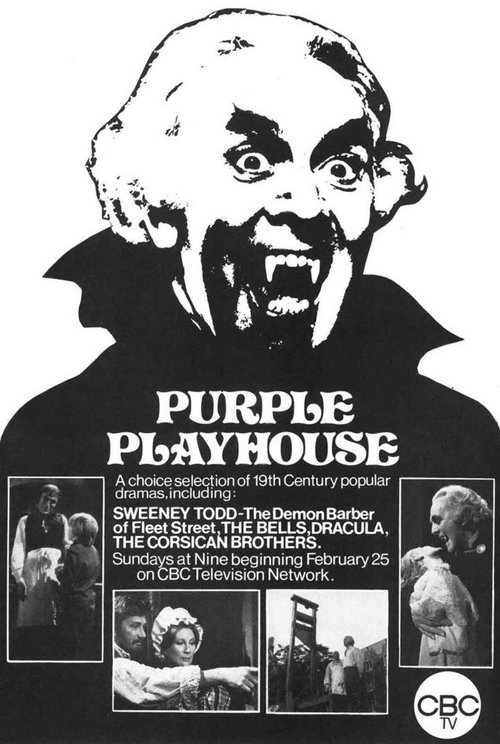 0
0Purple Playhouse
Purple Playhouse is a Canadian dramatic television series which aired on CBC Television in 1973.
 0
0To the Wild Country
Naturalists John and Janet Foster lead a series of expeditions into the remotest regions of Canada, revealing the spectacular features and wildlife of its vast system of National Parks. From Pacific Rim National Park to Gros Morne National Park, they travel from one end to the other of the world’s second largest country.

Marketplace
Marketplace is a Canadian television series, broadcast on CBC Television. Launched in 1972, the series is a consumer advocacy newsmagazine, which shows investigative reports on issues such as product testing, health and safety, fraudulent business practices and other news issues of interest to product and service consumers.